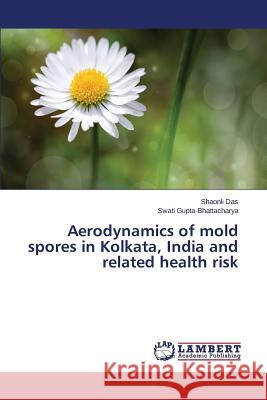Aerodynamics of mold spores in Kolkata, India and related health risk » książka
Aerodynamics of mold spores in Kolkata, India and related health risk
ISBN-13: 9783659206818 / Angielski / Miękka / 2014 / 84 str.
Molds are tiny fungi whose spores float through the air. They like damp environments and need four things to grow: food, air, appropriate temperature and water. Molds can be found outdoors, in homes and in other buildings. Everyone breathes in mold spores in the air, but some people have an allergic reaction or asthma symptoms if exposed to too much of this fungus. If you are allergic to mold, your immune system is overly-sensitive to specific mold spores and treats them as an allergen. When you inhale the mold spores, your immune system triggers symptoms such as sneezing, itchy, watery eyes, runny nose, nasal congestion or itchy nose, mouth and lips. There are hundreds of types of molds, but not all of them are responsible for causing allergy symptoms. The most common allergy-causing molds include Alternaria, Aspergillus, Cladosporium and Penicillium. Many people allergic to mold develop symptoms outdoors on days when mold spores are in the air. You may also have symptoms indoors if mold is in your home, school or workplace (American Academy of Allergy, Asthma and Immunology Official website: http: //www.aaaai.org/conditions-and-treatments/allergies/mold-allergy.aspx)
Molds are tiny fungi whose spores float through the air. They like damp environments and need four things to grow: food, air, appropriate temperature and water. Molds can be found outdoors, in homes and in other buildings. Everyone breathes in mold spores in the air, but some people have an allergic reaction or asthma symptoms if exposed to too much of this fungus. If you are allergic to mold, your immune system is overly-sensitive to specific mold spores and treats them as an allergen. When you inhale the mold spores, your immune system triggers symptoms such as sneezing, itchy, watery eyes, runny nose, nasal congestion or itchy nose, mouth and lips. There are hundreds of types of molds, but not all of them are responsible for causing allergy symptoms. The most common allergy-causing molds include Alternaria, Aspergillus, Cladosporium and Penicillium. Many people allergic to mold develop symptoms outdoors on days when mold spores are in the air. You may also have symptoms indoors if mold is in your home, school or workplace (American Academy of Allergy, Asthma and Immunology Official website: http://www.aaaai.org/conditions-and-treatments/allergies/mold-allergy.aspx)











